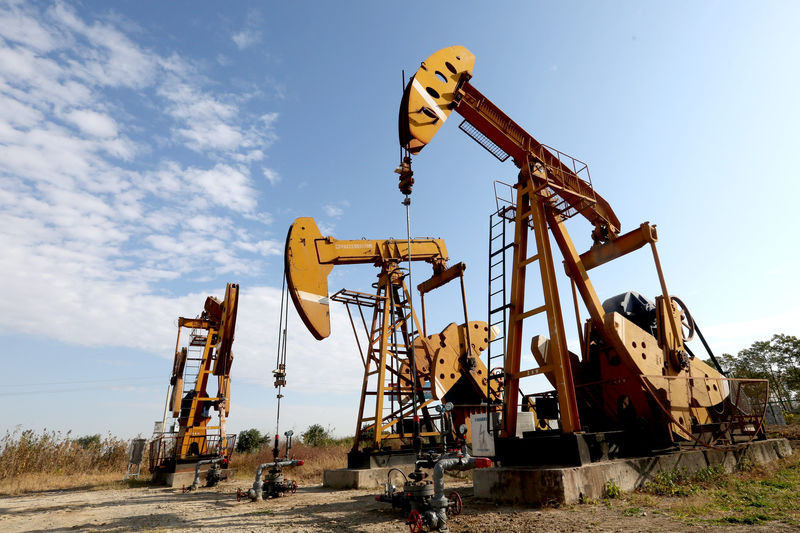By Barani Krishnan
Investing.com - Crude prices jumped about 3% Monday after the Trump administration announced it was ending sanction waivers for importers of Iranian oil.
New York-traded WTI settled up $1.70, or 2.7%, at $65.70 per barrel after hitting a near-six-month high at $65.98.
London-traded Brent, the global oil benchmark, was up $2.15, or 3%, at $74.12 by 2:45 PM ET (18:45 GMT). It earlier hit a 2019 high of $74.52.
Year to date, WTI is up about 45%, while Brent has gained some 38%. Gasoline has rallied even more, up by 60%.
President Donald Trump said he expected Saudi-led OPEC to end its five-month long production cuts that have jacked crude prices by nearly 50% this year and replace lost barrels from Iran and other sources such as Venezuela and Libya. Riyadh stopped short of giving such assurance.
"Saudi Arabia and others in OPEC will more than make up the Oil Flow difference in our now Full Sanctions on Iranian Oil," Trump tweeted.
But the Arab News site quoted Saudi Energy Minister Khalid al-Falih as saying the kingdom will work to ensure the availability of oil supplies and the lack of market imbalance following the end of the U.S. sanction waivers on Iran. That was short of an implicit guarantee that consumers would once again have free-flowing oil and at preferred prices, two things OPEC would never let the market have, if it could.
"Trump (seems) very sure that (the Gulf Cooperation Council) will make up lost barrels, but that's NOT what Khalid al Falih said AT ALL," Investing.com oil columnist Ellen Wald said in a tweet.
"Saudi Arabia isn't going to hamstring itself in OPEC by committing to a certain number of barrels. (The) question is just how clear KAF has to make that in defiance of (the) Trump tweet," Wald added.
Scott Shelton, energy futures broker at ICAP (LON:NXGN) in Durham, N.C. had a similar view.
"While the Saudis have said that they will be willing to increase exports, and OPEC has spare capacity, it’s going to be interesting to see how much they can provide for the market on a short-term basis, as many think that their spare capacity is less than advertised," Shelton said.
"Quite frankly, I thought that Trump was using the Iran sanctions waivers as a way to control prices,” he added. “But if he is taking Iran closer to zero exports, he doesn’t mind oil prices up here or thinks that the Saudis have the spare capacity."
